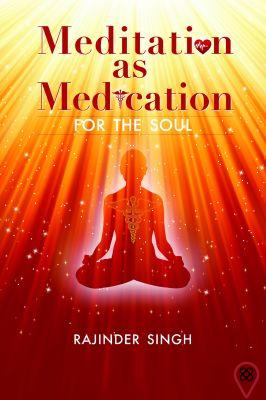
From the perspective of Meditation, the greatest disease of the human being is the excess of involuntary thoughts, as they are the root cause of the enormous majority of the difficulties we go through in life.
In some people, a certain group of involuntary thoughts prevails, which generates one or another specific disturbance, while, for others, this group of thoughts is different, generating other disturbances.
Thus, some tend to be, for example, more depressed, others more anxious, others more angry, others more greedy, others more fearful, others more arrogant, others more proud, as if each person had their “radio device” turned on in certain “stations” with programs aimed at maintaining and strengthening this or that disorder.
In the same way that a person who lives in a place with very polluted air ends up getting used to this pollution and not being aware of it, we also get used to our pollution of thoughts and stop being aware of it. In both cases, getting used to pollution does not mean not being affected and harmed by it.
In this way, the first step to serenely seek solutions is to realize our real situation and the harm it brings.
Meditation generates the emergence of the antidote of involuntary thoughts, and the name of this antidote is "Presence".
Presence: period of continuous awareness of reality without thoughts interspersed between different perceptions.
Presence is ours Be true, uncontaminated by ego, unnecessary thoughts and conditioning.
The Presence is intrinsically associated with qualities such as creativity, wisdom, complete well-being, serenity, love and inner silence, for example.
It is not the accumulation of the past and it is not a predictable entity, as is the ego, but simply the consciousness that observes, in a neutral way, both external reality and the body itself, the emotions and thoughts available to our perception in the moment. present moment, and from it arises the flow appropriate to the situation experienced.
It seems simple, banal, but the tendency of our mind is soon to provoke some unnecessary involuntary thought, which immediately takes us away from the awareness of present reality, and this thought can take the form of a judgment, an opinion, a desire, a mental image, a memory… These unnecessary, involuntary thoughts are what we call “scatters” during Meditation.
At the beginning of Meditation practices, the periods of dispersion are very long, and the aim is to make them shorter and shorter. And how to make them shorter? Catching the involuntary thoughts that arise, because only then will we be able to interrupt them and turn our attention to the present reality. Without catching them in the act, harmful involuntary thoughts move on…
Our intention in Meditation is to remain continuously present, although in Meditation we are usually only able to be in a greater degree of Presence than we are normally, not at our peak of Presence. Yes, we must mobilize ourselves to reach this peak, but a higher degree of Presence is enough to already consider our practice as profitable.
Therefore, it is not convenient to define Meditation as not thinking, because it is very common for thoughts to occur, and this practice will not cease to be a Meditation. Thus, when thoughts occur during our mobilization to remain continuously present, the important point becomes to catch them in the act, not to identify with them and to interrupt them, as we return our perception to the present reality.

























